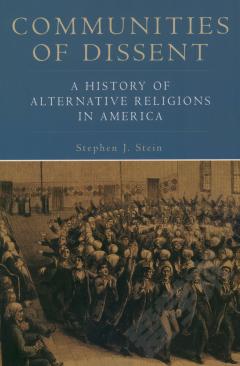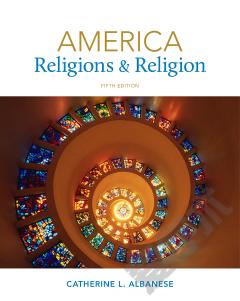Alternative American Religions
Alternative religious groups have had a profound influence on American history-they have challenged the old and opened up new ways of thinking about healing, modes of meaning, religious texts and liturgies, the social and political order, and the relationships between religion and race, class, gender, and region. Virtually always, the dramatic, dynamic history of alternative religions runs parallel to that of dissent in America. Communities of Dissent is an evenhanded and marvelously lively history of New Religious Movements in America. Stephen J. Stein describes the evolution and structure of alternative religious movements from both sides: the critics and the religious dissenters themselves. Providing a fascinating look at a wide range of New Religious Movements, he investigates obscure groups such as the 19th-century Vermont Pilgrims, who wore bearskins and refused to bathe or cut their hair, alongside better-known alternative believers, including colonial America's largest outsider faith, the Quakers; 17th- and 18th-century Mennonites, Amish, and Shakers; and the Christian Scientists, Jehovah's Witnesses, Black Muslims, and Scientologists of today. Accessible and comprehensive, Communities of Dissent also covers the milestones in the history of alternative American religions, from the infamous Salem witch trials and mass suicide/murder at Jonestown to the positive ways in which alternative religions have affected racial relations, the empowerment of women, and American culture in general.
{{comment.content}}








 京公网安备 11010802027623号
京公网安备 11010802027623号